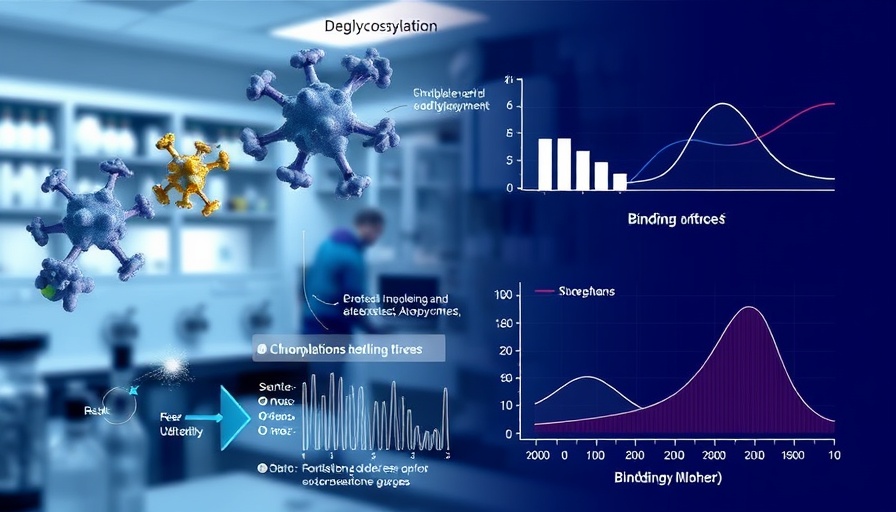
The Intriguing Role of Corynebacteria in Antibody Deglycosylation
In a fascinating leap within the fields of microbiology and immunology, researchers have unveiled the unique mechanisms through which corynebacterial IgG-specific endoglycosidases (ENGases) interact with human IgG antibodies. These findings, published in Nature Communications, shed light on how certain bacteria utilize these specialized enzymes not only for survival but also for evading the human immune response. By targeting the glycans linked to the N297 position of the IgG antibodies, corynebacteria can significantly inhibit immune functions, representing both a novel bacterial strategy and a new frontier in therapeutic development.
What Are Endoglycosidases and Their Importance?
Endoglycosidases play a vital role in glycosylation—a key biochemical modification influencing protein structure and function. This process is crucial for the immune system, as specific glycan compositions can dictate how antibodies bind to their targets, interact with various immune receptors, and enable immune activation. The recent study outlines how ENGases such as CU43 and CM49 function specifically on the IgG1 Fc region, underscoring the sophisticated nature of bacterial evolutionary adaptations to manipulate host immunity.
Potential Implications for Longevity and Disease Prevention
For health-conscious individuals interested in longevity and wellness, the implications of this research extend beyond basic biology. By understanding how bacterial enzymes influence IgG activity, scientists could develop new biohacking strategies to enhance immune responses. By manipulating glycosylation patterns, researchers could potentially create more effective vaccines or treatments that utilize robust immune mechanisms, contributing to advancements in longevity and overall healthspan optimization.
The Science of Deglycosylation: Unpacking the Mechanism
Through a combination of innovative techniques—including crystallography and in silico modeling—the research team revealed that CU43 binds to the Fc region of antibodies in a carefully orchestrated manner that enables the removal of protective glycans. This process not only helps the bacteria evade immune detection but also brings attention to how similar strategies might be harnessed or mitigated in clinical settings. Imagine applying this knowledge to enhance your body’s immune function through targeted nutritional or supplemental interventions; such possibilities are tantalizing for anyone invested in health and wellness science.
Health Insights from the Study: A Call to Action
What can you take away from this groundbreaking research? Firstly, a better understanding of how your immune system interacts with pathogens can empower you to make informed choices in your wellness journey. Consider incorporating immune-boosting supplements and a diet rich in antioxidants, which can support immune resilience. Healthspan optimization is not just about avoiding illness; it's about maximizing your body’s ability to respond to threats, making this research a stepping stone toward longer, healthier living.
Moving Forward with Knowledge
As we continue to uncover the mysteries of cellular interactions within the human body, the intersection of microbiology, nutrition, and health is becoming clearer. Staying abreast of such developments is critical for anyone passionate about biohacking for longevity. With emerging insights from the studying of corynebacterial ENGases, the potential for breakthroughs in preventing aging-related diseases and enhancing life quality seems more attainable than ever.
To stay ahead in the game of health and longevity, keep reading, stay curious, and embrace the cutting-edge research that can enhance your understanding and approach to wellness. Despite the complexities of cellular mechanisms, the takeaways are straightforward: informed choices lead to empowered health. Let this inspire you to explore personalized health strategies.
 Add Row
Add Row  Add
Add 




Write A Comment